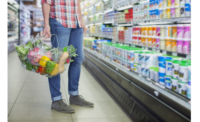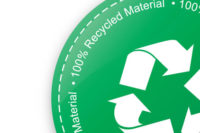Companies re-define ‘recycling’ through sustainable pledges
Manufacturers are taking sustainability to the next level by finding new ways to extend the life of product materials

Reduce, reuse, recycle. As a society, we’ve become accustomed to this motto in our everyday lives. We claim to be environmentally conscious through our efforts to separate recyclable goods from our waste and discard accordingly. We buy local, we think twice before printing, we carpool to work and we advocate consumer goods with tiny triangular arrows. But could we be doing more? According to many green innovators, these efforts are child’s play compared to many recent initiatives that utilize the ‘second use’ of their materials in most unexpected ways.
In Marin County, California, for example, the community has begun processing wasted food from local grocery stores and restaurants to generate electricity. Meanwhile, the brains behind Starbucks have found a way to recycle coffee grounds and baked goods into laundry detergent, and companies like WikiCell have developed edible food packaging using fruit and vegetable membranes to encase everything from yogurt to alcoholic beverages.
Although many of these examples seem other-worldly, sustainable initiatives don’t necessarily have to be out-there in order to be innovative. At Ready Pac Foods, Inc (www.readypac.com), their environmental efforts have made an impact because they’ve been executed across multiple areas of their business; from facilities and energy usage all the way to associate incentive programs. They’re not solely limited to the consumer-facing end product that brands often use to build image and drive sales. Each year, Ready Pac donates over 660,000 bags and trays of products to local food banks and community charities. By installing trash compactors in their facilities and ramping up their recycling program, they reduced loads of waste to landfills from 50%-75% by installing trash compactors. In plants that operate using 50% solar energy and save 25,000 gallons of water per day, the Ready Pac Bistro® Bowls are produced using 70% post-consumer PET, and each insert reclaims 1.15 recycled 500ML drink bottles.
“When we first began these initiatives, it caught on like wildfire,” says Santiago Pacheco, director of operations at Ready Pac. “Environmental awareness is a bond we all share because if affects each of us in some form, so our plant associates quickly got involved with the process. They helped us call out many areas where efficiencies could be realized. Through this team collaboration, we’re able to continue adapting and coming up with new ideas to reduce our carbon footprint, and it feels good to be part of the solution.”
Looking for a reprint of this article?
From high-res PDFs to custom plaques, order your copy today!







